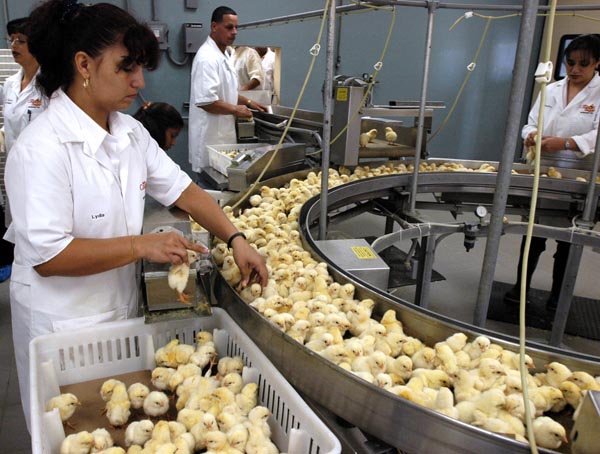ASORE blasts bill proposing poultry regulatory office

The head of the Puerto Rico Restaurants Association blasted Senate Bill 2281 Tuesday, saying it could trigger an increase in chicken prices at the consumer level and would represent the creation of yet another government entity.
In public hearings, Humberto Rovira, president of the trade group known as ASORE, explained his concern over the bill submitted in September 2011 to create the so-called Puerto Rico Poultry Production, Import and By-Products Stabilization Office and establish mechanisms to fix minimum prices and impose penalties for violating its stipulations.
While he said the bill outlines the problems plaguing the island’s poultry sector, it does not provide any solutions to address them.
“The proposed strategy threatens to create a market with high prices for the consumer and provisions contrary to the constitutional principles of free competition,” Rovira said. “Moreover, as drafted, the bill supports creating another government structure to rectify a problem that already has a solution but has not been implemented.”
“This increases the bureaucracy that wants to be prevented and reduced, according to the policy adopted by this administration,” he further noted.
In his testimony, Rovira stressed the fact that the industry requires measures to implement and oversee laws already in place, “not new measures that increase product prices and create unnecessary bureaucracy, which could ultimately lead to poultry industry’s demise.”
Puerto Rico’s once-thriving poultry industry has been limping along during the better part of the last decade, due to rising production costs and the recession. Last year, after several attempts at launching its fresh chicken production line, Canto Alegre/Picú was forced to close its plants in Salinas and Coamo, respectively, leaving hundreds of southern farmers out of work and in significant debt. Meanwhile, To-Ricos has remained in the market despite the Chapter 11 filing of its parent company Pilgrim’s Pride.
Among other things, the measure states it is the government’s responsibility to look out for and help the sector, which it defined as one of the “pillars” of local food production, along with the dairy and fruit and vegetable sectors.
However, Rovira opined that any approved legislation related to public policy must underscore the protection of consumer interests and the “majority of the industry’s components,” which he said are now at risk.
Important food source
During fiscal year 2007, Puerto Rico residents consumed 366 million pounds of chicken, of which 66 percent was imported fresh and frozen, and the remaining 34 percent — or 121.8 million pounds — was locally produced fresh chicken. By fiscal 2011, local production dropped to less than 50 million pounds, due to To-Ricos’ limited capacity.
“It has been proven that the local poultry industry does not have the capacity to supply all of the demand that exists in Puerto Rico. The new law penalizes the consumer, including restaurants, cafeterias and bakeries which would be forced to buy imported chicken at a higher price than what is currently in effect, given that local production is not enough.”
To offset the local industry’s shortcomings, Senate Bill 2281 proposes establishing a formula to implement a minimum price per pound of fresh chicken and its by-products, a requirement that could infringe on free market competition, opponents have said.
While some members of the poultry industry see the measure as the last hope for recovery, others see it as an underhanded attempt by a small group to “control the industry.”
“Creating a board to regulate the sector will create a problem, not a solution,” said a poultry industry executive on the condition of anonymity, referring to the seven-member board proposed in the bill.
Meanwhile, Alejo Camacho Torres, president of the To-Ricos Poultry Farmers Association, said the group is not against the bill, but is interested in “discussion and submitting several amendments,” including carrying out an educational campaign to strengthen the local product.
During the hearing headed by Sen. Carmelo Ríos, Camacho was asked to submit his amendments in writing. Ríos said he will wait until a new Agriculture Secretary is appointed to learn his opinion of the bill prior to taking any further steps.
















